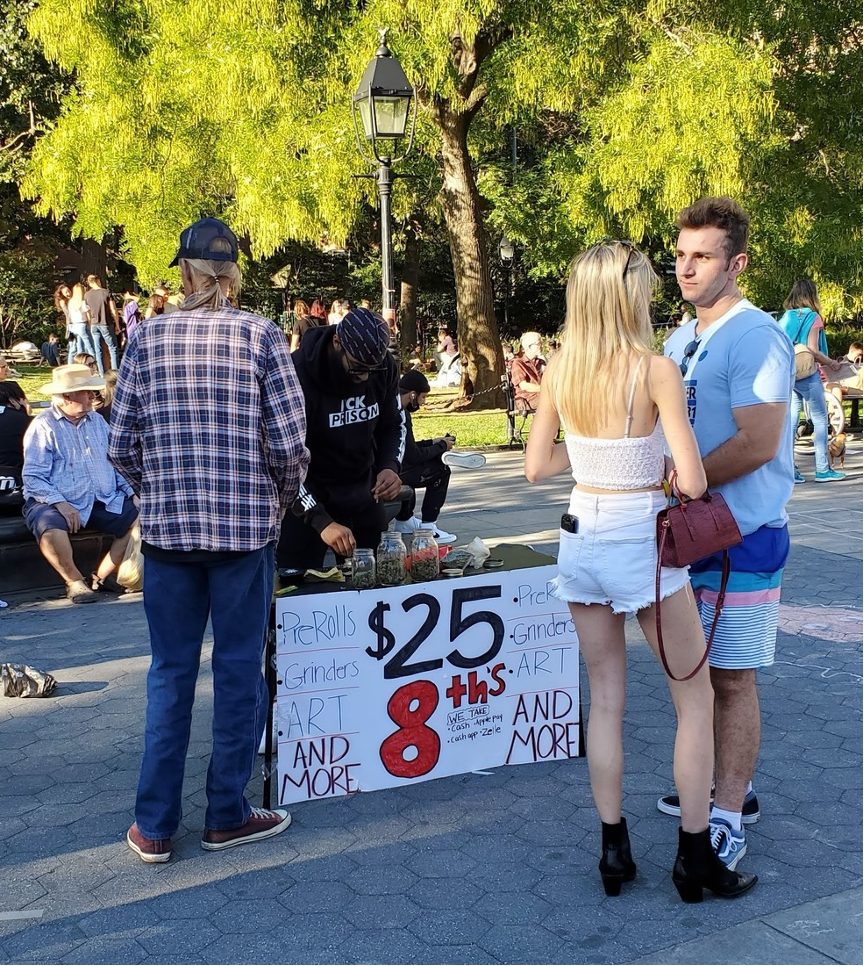
In March 2021, marijuana was legalized for recreational use in New York State. Many retailers popped up on streets around New York City, as there was no punishment for selling it openly for recreational use.
Marijuana has been available to New Yorkers through the state’s medical marijuana program since 2014. It was the fifteenth state to legalize its medicinal use and the fourteenth state to legalize its recreational use.
California legalized marijuana earlier than New York, making it available for recreational use in 2016. They were also the first state to legalize its medicinal use in 1996. When the legalization bill passed in 2021, it promised stronger regulation and revenue for the industry. The product would also be of higher quality, lowering the risk for consumers purchasing marijuana laced with other drugs, including fentanyl. Ultimately, the marijuana industry promised to create jobs, and lawmakers expunged over 40,000 marijuana-related criminal records.
To open a marijuana dispensary in New York, retailers must obtain a conditional adult-use retail dispensary license. Applicants must either meet qualifying business or nonprofit criteria. Nonetheless, New York has yet to issue any dispensary licenses. This would regulate and tax the product, increasing state revenue and ensuring a safer product for consumers. Non-licensed sellers and growers continue to dominate the market — and the longer the wait for retail licenses, the harder it will be for the regulated sellers to tap into the market.
Currently, there is no penalty for selling cannabis without a license since the substance is legalized and permits have yet to be issued. Thus, the competition between sellers is entirely unregulated, with a low barrier to entry.
The promises that were made under its legalization campaign could be more difficult than anticipated to deliver and achieve. Non-licensed marijuana retailers do not pay taxes and can sell at lower prices.
This story is all-too-familiar, with California’s recreational use legalization following a similar path. Following marijuana’s recreational legalization in 2016, the state did not begin issuing retail licenses until 2018. In the time between its legalization and the licensing of retailers, the underground market grew stronger — and by the time regulated dispensaries entered the market, they were served unfavorable conditions, with the illicit market continuing to outpace the regulated one. While significant progress has been made in job creation, many retailers have also had to close up their shops.
However, marijuana possession, cultivation, and use remain illegal under federal law. Some cannabis-derived products have been legalized at a federal level, including cannabidiol (CBD), which contains no more than 0.3% of tetrahydrocannabinol (THC), the mind-altering substance in marijuana.
Some studies cite the safety and efficacy of marijuana for medicinal purposes, and it runs a lower risk for recreational use than alcohol. According to the CDC, alcohol poisoning accounted for 140,000 deaths per year between 2015-2019 in the United States, while marijuana overdose has been cited as highly unlikely.
Nevertheless, legalizing the drug federally could prove more difficult with states such as New York and California running into issues interrupting their recreational marijuana plans. 40 thousand people were incarcerated for marijuana-related crimes as of 2020, according to Forbes. A 2022 analysis of marijuana possession arrests in Texas between 2017-2019 reported that African Americans made up 30.2 percent of all cannabis possession arrests, despite making up 12.9 percent of the state’s population.
Thus, it is imperative that the legalization of recreational cannabis is set up for success, both in individual states and eventually, on a federal level. To do so, states such as New York need to accelerate the process of issuing retail licenses to set the regulated, safe and profitable market up for success.



